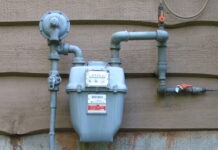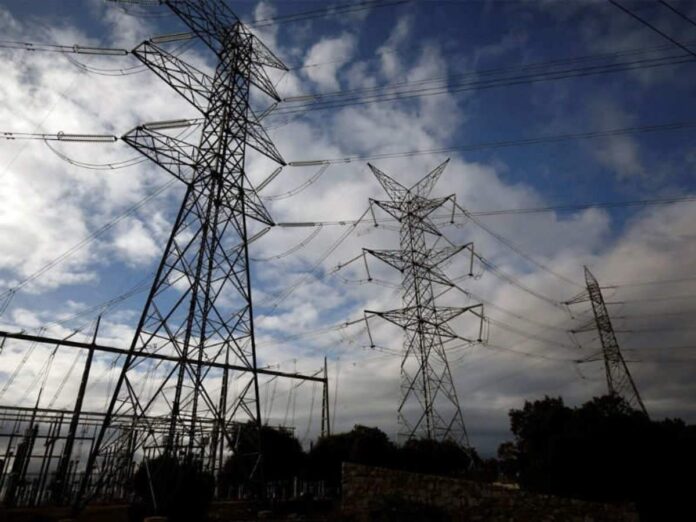ISLAMABAD: On Monday, February 6, 2023, the Lahore High Court gave its verdict on a case filed by hundreds of petitioners, particularly about the recovery of exorbitant fuel price adjustment charges by the National Electricity Power Regulatory Authority (NEPRA).
The decision of the court in favour of the petitioners reads, “demand of Fuel Price Adjustment, Quarter Tariff Adjustment, Change of status of tariff from Industrial to Commercial by the NEPRA not constituted fully under section 3 of the NEPRA Act, 1997 is illegal.”
Fuel Cost Adjustment
According to NEPRA, fuel cost adjustment (FCA) is a mechanism for recovery of leftover fuel cost components. To understand this better we must first understand the basics of the energy sector supply chain.
Each month in your electricity bill there is a charge under the “fuel cost adjustment”. It’s charged in two parts, firstly for example my electricity bill will represent the tentative cost of electricity based upon the predictions of fuel cost used to make that electricity.
Now if the tentative or predicted cost is higher than the actual cost of the electricity produced, then the consumer would witness a negative fuel charge adjustment, that is the government would adjust the bills of the consumer.
To simplify it let’s say for the month of February I was charged a fuel cost adjustment of Rs 5/kWh, however the actual cost of the electricity based on international prices of fossil fuels was Rs 2.5/kWh. In this scenario the government would adjust this in the bill of the following month of March by subtracting this component from the bill. And the opposite would be applicable if the tentative cost of electricity was lower than the actual cost.
What is Section 3 of the NEPRA Act, 1997?
The “Section 3” of the NEPRA act focuses on the establishment of the regulatory authority and further dictates the executive structure of the company. Furthermore it elaborates on the prerequisite skills and qualifications required for the members of the board.
According to the act, the Nepra board would consist at any given time of a Chairman and four members, one from each Province, “appointed by the Federal Government after considering the recommendations of the respective Provincial Governments”.
This was put into law to ensure that all the provinces and respective stakeholders were on the same page in regards to any laws or proceedings of Nepra that could have a direct impact on the consumers.
The petition…
The “basic legal question” presented by the petitioners before court was the constitution of Nepra defined in Section 3 following the amendments to the Act and the Supreme Court’s decisions.
Even though Section 3 of the Nepra act unequivocally states that, “no act or proceeding of the Authority shall be invalid by reason only of the existence of a vacancy in, or defect in, the constitution of the Authority”.
The petitioners however argued that under Section 3 subsection 4(A), “the Authority as a whole shall comprise the requisite range of skills, competence, knowledge and experience relevant to its functions”.
The petitioners contended that “the Authority contemplated in section 3 had not been completed” because, aside from the Chairman and two members, the rest of the board had not been appointed by the Federal Government.
As a result, the authority was not fully operational at the time of calculating adjustments to the approved tariff due to monthly variations in fuel charges.
To simplify the point of contention in this matter, the representatives from the provinces each occupy a senior executive role in the Nepra board through which the rights and interests of the consumers can also be guarded and all relevant stakeholders can be kept in the loop.
The petitioners state that, “provincial representation is essential not only to protect the national interest but also to ensure that none of the Provinces feels deprived of their role in contributing into the running of the affairs of the country/Federation”.
The court decision…
The Lahore High Court in its decision on the matter ordered Nepra to “notify customers of charges on a monthly basis”, and “the fuel price adjustment shall not exceed seven days”, and “the Quarter Tariff Adjustment shall not exceed the statutory period”.
Furthermore the court states that, “not to charge any exorbitant tariff beyond the paying
capacity of the domestic consumers”. However clear values and definitions as to the decision of the court have not been provided, for instance what would qualify as an “exorbitant tariff”.
Additionally the court decision directed Nepra to “fix the responsibility of over-charging on the basis of line losses and the less efficient power plants and the financial burden will also be shared by the companies under a rational proportion”.
Apart from this, the court also gave similarly vague and generalised directions to Nepra. For instance the court directed Nepra “to explore the cheap modes of producing electricity and will evolve mechanisms for its quick availability” and “to ensure the smooth supply of electricity based on demand”.
The last direction given to the authority was regarding the change type of tariff based on the classification of a business. The court directed Nepra, “not to unilaterally change the type of tariff from Industrial to Commercial without hearing such consumers”.
The Lahore High Court also issued directions on the same line to the federal government as well. Firstly the court stated that the government should “provide a maximum subsidy to the domestic consumers of 500 units per month”.
Furthermore the court directed the government “not to demand extraordinary taxes having no nexus with the consumption of energy which may be recovered through other modes”. However no other modes have been specified or elaborated on.
Providing a potential solution to the ailing energy sector the court stated that the government should “further explore the Solar, Hydal, Nuclear and Wind sources of producing electricity” and to “arrange for cheap purchase of sources of electricity from other countries”.
Questions..
Although the concerns of positive fuel charge adjustment have been addressed by the court, questions still remain if there is a negative adjustment in the scenario that the predicted prices are higher than the actual prices.
Additionally energy sector experts have raised questions on the vague nature of directives issued by the Lahore High Court, for instance what would qualify as an exorbitant tariff?
To add to these queries the court stated “the financial burden will also be shared by the companies under a rational proportion”, first who would decide this rational proportion and how this would be quantified in the already complicated calculations of tariffs.
Although the decision seems to be in the favour of the petitioners, the case has raised more questions than answers and according to informed sources, Nepra is set to appeal this decision of the high court in the supreme court.
























